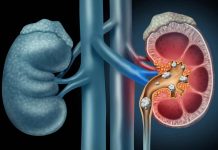
[WARNING] 7 Signs Your Food Has Dangerous Ingredients
(AscendHealthy.com) – Our relationship with food is often complicated, with the balance between healthy and harmful habits often being difficult to juggle. Even when we think we’re doing everything right, we can still trip ourselves up by including foods containing triggering ingredients.
Symptoms might not always be straightforward, so we may not make the connections unless we’re aware of them. We have some tips that may help with identifying and eliminating personal food dangers.
Finding Your Triggers
Some of us live in more misery than we need to, and a slight change in diet could be all that stands between our continuing to suffer and finding sustainable relief. Food intolerances affect up to 20% of the population, with a good portion unaware that their meal choices are behind their discomfort. When we think of food interactions, we may envision symptoms of food poisoning or other clear-cut signs of illness, but they’re often far subtler.
Following are seven signs that could point toward health-eroding food interactions:
- Digestive issues often include heartburn, bloating and abdominal pain, but some may also experience more severe manifestations like nausea or diarrhea. According to Healthline, these symptoms can occur up to 48 hours after ingesting the offending foods.
- Weight changes can occur due to chronic, low-grade inflammation from food pseudo allergies. Some people may find losing weight impossible, explains US Biotek Laboratories. Conversely, some sufferers, particularly children, may have difficulty gaining or maintaining a healthy weight.
- Physical fatigue can result from numerous problems, so we might not consider diet as a culprit.
- Headaches are another common manifestation that we might chalk up to stress or other issues when eliminating certain foods could make a difference.
- Joint pain isn’t always the result of an autoimmune disease or fibromyalgia; it can sometimes be a symptom of food intolerance. Gluten is often to blame.
- Skin reactions are more common with food sensitivities than many of us realize. These issues can range from rashes to acne breakouts.
- Congestion can occur with some sensitivities. People with uncontrolled nasal symptoms or asthma may want to talk to a doctor about sensitivities to histamine-triggering foods, salicylates and other potential offenders.
It’s worth discussing any of these warning signs with a healthcare provider to try to get to the root of the problem.
Minimizing Food Dangers
Pinpointing food sensitivities isn’t always easy. Some people believe specific blood tests can help identify these issues, but the most current research conflicts with those claims. Most experts agree that keeping a food journal, listing all foods we consume and any reactions we notice, is the best way to narrow down the list of causes. It may take time to make the connections; even when we see a pattern, the source may still take some time to pinpoint.
We can experience intolerances due to multiple causes. In some cases, we may lack the enzymes necessary to digest certain proteins, leading to digestive issues. In others, we might have histamine responses to common foods or additives.
When attempting to eliminate the culprit(s), look at major food groups — but also don’t forget the less usual suspects, which include:
- Salicylates, which are abundant in curry, peppers, oregano, mustard, cayenne and aspirin.
- Sulfites, which occur in red wine and a few other items.
- Sodium glutamate (MSG), which is common in processed foods and some Chinese take-out.
- Colorants and preservatives, which are abundant in many processed foods.
- Artificial sweeteners, also common in highly processed foods.
Our bodies usually let us know when something is wrong, although we might not always listen. Those of us with long-standing symptoms but no other identifiable medical causes might simply be looking in the wrong directions for answers. The problem may indeed be related, in some cases, to an autoimmune disease or other complicated illness — but it could also be as simple as a dietary component we need to eliminate. There’s only one way to find out for sure.
~Here’s to Your Healthy Ascension
Copyright 2023, AscendHealthy.com




















